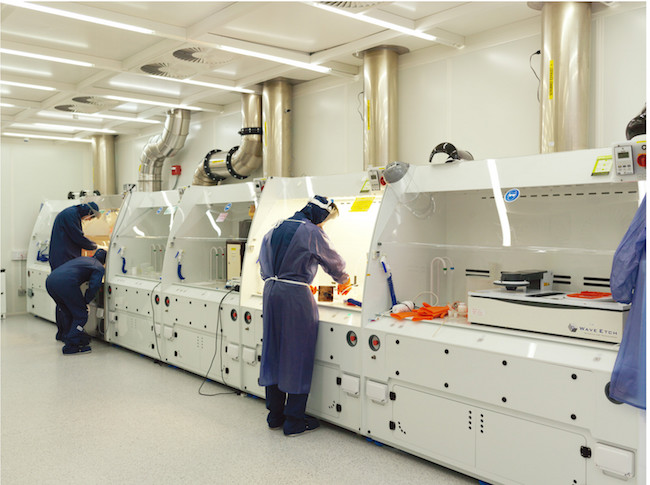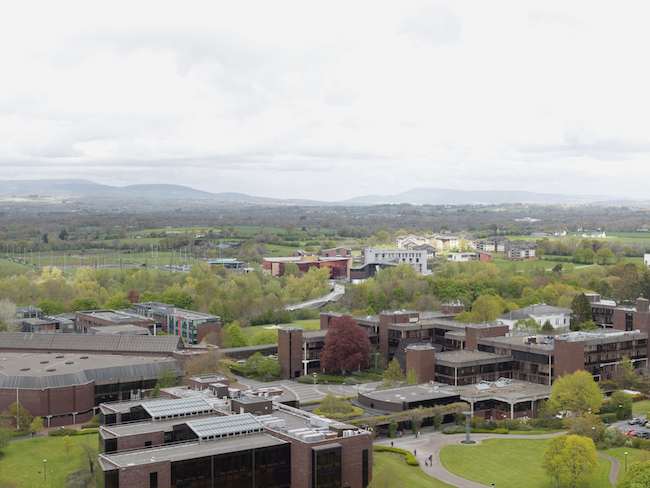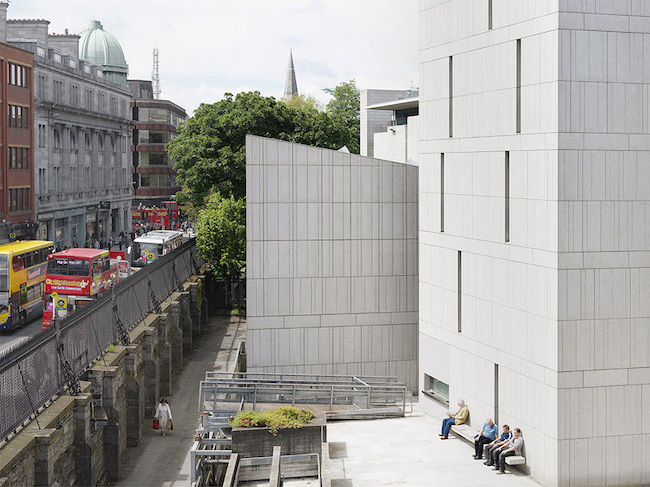‘A Quantum Jump’: Reinvigorating University Research in Ireland
Resource type: News
The Atlantic Philanthropies | [ View Original Source (opens in new window) ]
Like many Irish Americans, Chuck Feeney, Atlantic’s founder, has a profound affection for his ancestral land. Luckily for the Irish, that abiding love has prompted a radical transformation in the country, which started with a focus on enriching the university experience nationwide—both with capital grants and program initiatives—and ultimately helped create a thriving knowledge economy.

It would be difficult to exaggerate how bleak the Irish research landscape looked. It has been totally transformed, thanks in large part to the catalytic initiative shown by Atlantic.
– Dr. Hugh R. Brady, president emeritus of University College Dublin
Beginning with his very first grant in Ireland, to the University of Limerick in 1990, Mr. Feeney’s focus on improving higher education in both the Republic of Ireland and in Northern Ireland, from which his mother’s family hails, has had a profound impact.

“When Chuck came to Ireland around 1990, the country was in a very bad state,” says Colin McCrea, Atlantic’s Dublin-based former senior vice president. “He thought, ‘If you have a good university education system that will stand for many years to come, that provides a good foundation for the country to prosper.’”
The decision to focus on not one but all universities started a layering effect that would change Ireland’s university system—and research capacity—forever.
Speeding Things Up
Throughout the 1990s, Atlantic made huge contributions to a variety of capital projects—but Mr. Feeney wanted to do more. Following the sale of Duty Free Shoppers to Louis Vuitton Moët Hennessy in December 1996, the foundation suddenly had an influx of liquid capital. “Chuck called me in spring 1997 and said, ‘I really want to expand our bricks and mortar program with the Irish universities,’” John R. Healy, then head of the Atlantic’s Irish operation, recalls. “He wanted to speed things up.”
Mr. Healy, who would go on to become the foundation’s president and CEO in 2001, had another idea: Instead of funding projects alone, he wanted to use Atlantic’s capital as a way to get the Irish government to co-invest in initiatives to support higher education. This led to Atlantic becoming the major funder of Ireland’s Programme for Research in Third Level Institutions (PRTLI), which has become one of the foundation’s hallmark initiatives.

At the time, the government was only spending 11 percent of the European norm on basic research: This meant that Ireland’s top researchers were moving abroad to better funded universities. Don Thornhill, then the secretary general of the Department of Education, was trying to address the issue.
“We’d already started the PRTLI program with 6 million Euros ($7 million) from the government,” Mr. Thornhill explains. “This allowed Irish universities to submit proposals for research funding, which an overseas expert panel made up of prominent academics and researchers would judge.”
Making the Leap
Mr. McCrea had heard of the PRTLI project and arranged a meeting with Mr. Thornhill and Mr. Healy. After three months of back and forth, Mr. Thornhill recalls a breakfast meeting that would profoundly alter the landscape of Irish research. “John R. Healy said to me, ‘What would you do if I offered you 60 million Irish pounds ($91 million) and asked you to put up a fifty-fifty match?’” Mr. Thornhill recalled. “I knew he was serious.”

That offer significantly pumped up the funds available for the first cycle of PRTLI. “A big investment like that allowed for a quantum jump in the level of funding that had been previously unavailable for research at the university level,” Mr. Thornhill says. The timing was also key. “The Celtic Tiger was beginning to emerge ‘snarling and growling,’” Mr. Thornhill says. “There was an air of increased optimism about the place.”
Atlantic funded three phases of PRTLI, which has provided for approximately 100,000 square meters (1.1 million square feet) of new research facilities in Ireland, 46 research institutes or programs, 1,000 research positions and 1,600 new postgraduate positions.
In the first three funding cycles, Atlantic’s investment totaled €178 million ($262 million), or 16 percent of the more than €1.1 billion ($1.3 billion) the government contributed in five cycles — meaning the foundation was able to leverage its support six-fold.
“It’s the best thing Atlantic ever did,” says Mr. Healy. “And certainly the most impactful.”
In recognition for Mr. Feeney’s support for higher education, in 2012 all nine universities of Ireland, North and South, jointly awarded him honorary doctorates of law, a first.
> Learn more about Atlantic’s capital investments in Ireland (North and South)
> Download Laying Foundations for Change